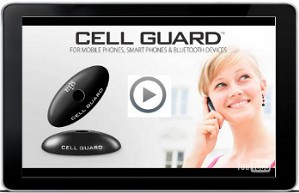India Gov’t Set Up Lab to Test Cell Phone Radiation Levels
The government of India is taking seriously the potential dangers posed by mobile phone radiation. Not only do the phone manufacturers have to comply with new rules, their heretofore self-certified phones will now need to be audited by a government set-up laboratory to ensure and enforce compliance.

The country’s first laboratory for testing and measuring mobile phone radiation was formally commissioned at the Telecommunication Engineering Centre (TEC) in New Delhi on Monday.
The government has said that new mobile phones manufactured in the country or imported should start following the stricter radiation norms by September 1. The radiation level should be displayed on such handsets. TEC’s Specific Absorption Rate (SAR) laboratories, which would measure the level of radiation emitted by mobile handsets, has been set up at a cost of Rs.2.5 crore. Currently, cell phone makers either self-certify the level or get it certified from international accredited labs.
SAR is related to electric field strengths produced inside body tissues while making calls. Department of Telecommunications (DoT) officials said that its Telecom Enforcement Research and Monitoring (TERM) cells will be responsible for conducting audit on self-certification furnished by the service providers.
Telecom minister Kapil Sibal, while commissioning the SAR laboratory, said, “We have set up a lab in the country so that mobile phones can be tested here for electromagnetic radiations. More such labs will be set up across the country starting with Mumbai.”
The new laboratory can take SAR measurements for CDMA, GSM 2G and 3G mobile handsets in the frequency band of 800 MHz, 900 MHz, 1,800 MHz and 2,100 MHz. The laboratory can also take measurements of SAR value against the International Commission on non-Ionising Radio Protection (ICNIRP) limit of 2 watts per kg measured over 10 gramme of tissue as well as the recently adopted 1.6 watt per kg measured over 1 gramme of tissue.
Sibal also commissioned a Next Generation Network laboratory at TEC which serves the objectives of testing and certification as well as network-related study for any Internet protocol-based equipment.
According to new radiation rules, the radio frequency exposure limit must be lowered to 1/10th of the existing level. It will also become mandatory for SAR to be embossed and displayed on the mobile handset by the manufacturer. SAR level for mobile handsets will also be restricted to 1.6 watt/kg, averaged over a mass of 1 gramme of tissue.
See full story on IndiaToday (Photo courtesy of indiatoday.com)
It remains to be seen whether other countries, including the U.S., will ever take this step, but advocates for cell phone safety are encouraged by this development. Meanwhile, precautionary measures such as using appropriate mobile phone radiation protection is still highly recommended.















How come India is more proactive in this mobile radiation issue than the US? Is it politics, or is the phone industry here more powerful than over there? They were able to pass a law requiring phone manufacturers to put the radiation information on the phone. That’s quite a big deal.
Did you know that any portable phone handset or cordless phone at home, office or workplace emits harmful electromagnetic radiation and microwave fields? Simply place a Cell Radiation Shield inside your phone under the battery or place and adhesive Cell Phone Protection Shield over the aerial of your portable phone. These highly protective radiation shields are suitable for all mobile phones, portable phones & cell phones. http://www.orgoneenergy.com/mobile-phone-radiation-shield